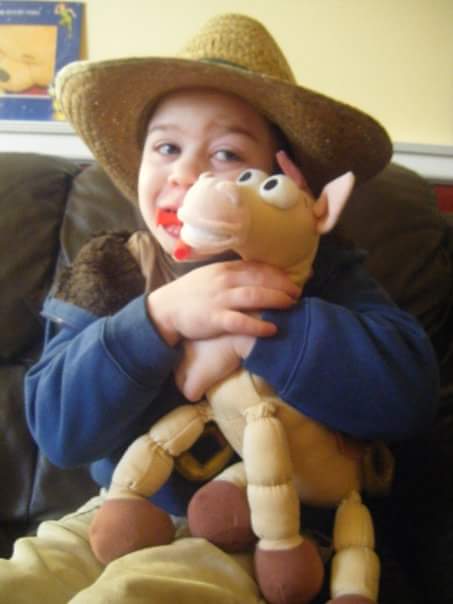There’s a secret world within the world of parenting a child with special needs, a world only some of us parents are privy to.
It’s difficult to write about.
His face turned red. He screamed, his body tensed. He quickly lifted his leg, dropping it on my leg over and over.
I don’t leave his side. I rarely do. He bites, head butts, pinches and punches.
I am afraid. That’s the truth.
I am afraid to leave his side in case he hurts himself.
I’m afraid he will hurt his brothers.
I’m afraid his brothers will learn to fear him.
I’m afraid he will not regulate this time.
I’m afraid he thinks I fear him.
I’m afraid that one day I won’t be able to help regulate him.
I’m afraid his medication needs to be increased.
I’m afraid he is hurting and Mommy can’t help.
I’m afraid he is trying to tell me something, but I can’t hear him.
I’m afraid his brothers think that he is hurting Mommy on purpose.
I’m afraid he thinks I don’t love him, while I try to hold his arms down and rock him.
I’m afraid he is afraid — imagine being afraid and not even able to tell your Mommy?
This is a reality for me and many other parents like me.
We don’t speak about this because we fear the public will think badly of our children or think we are full of self-pity. I’ve met plenty of members of the public who have told me (after my son has had a meltdown in public), “I wouldn’t let him get away with that behavior.”
Sadly many of us have feelings of shame, shame of what others will think.
My son cannot help his actions and reactions; they can be triggered so quickly and can subside just as quickly.
Behavioral therapy for children like my son can be beneficial, but as the years pass by, my son has lost some of his cognitive ability, making it difficult to engage him.
Art and music therapy are also beneficial, as is animal therapy. Medication has helped.
Medication is a scary option. There are so many questions we must ask before we even think about medication — especially considering my son’s progressive condition.
Medications, dosages and getting everything “right” takes time and patience, for my son as well as us.
But if you’re lucky enough, you will find the right balance, not only for your child but for your whole family.
My son still has meltdowns. I am still afraid of everything I listed above, but — and it is a big “but” — these meltdowns aren’t as often nor are they as intense as they once were.
To those who’ve experienced this part of parenting children with extra needs, I know it is heartbreakingly hard and scary, but there is help out there for your beautiful child and for you.
You and your children are not alone. We are here. We are quiet — but we are here.

A version of this post originally appeared on Firefly Friends. Follow this journey on It’s Me Ethan!
